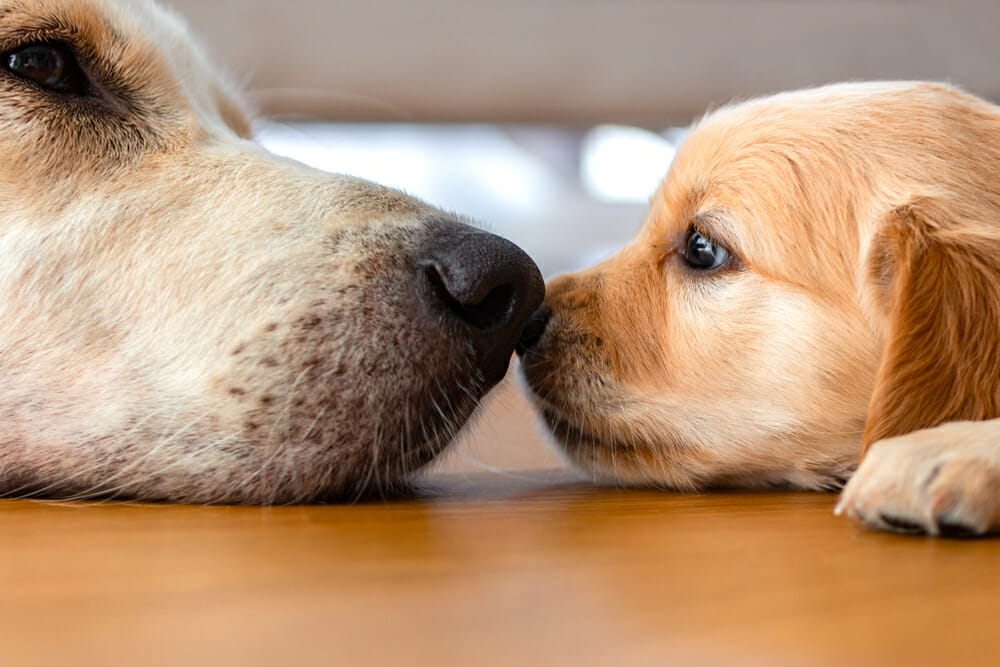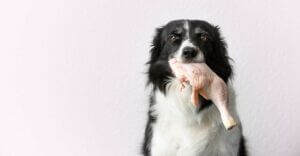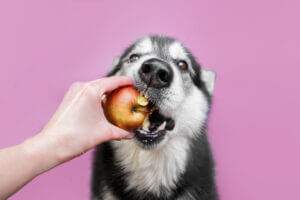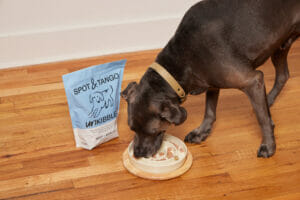Dogs are amazing companions and a huge part of our lives and puppyhood is so adorable but as we know pet parenting can always have some challenges. Has your puppy started jumping on people? Chewing your favorite things in a no-longer-super-cute way? Offering their help on the kitchen counters a little too enthusiastically?
Sometimes the transition from puppyhood into adolescence can make you feel a little crazy but we’re here to remind you that it’s not hopeless! Like humans, pups also go through different developmental phases as they grow up. Here are some of our best tips for getting through this challenging period with your pup.
What does adolescence look like in dogs?
Remember how little your puppy was when you brought her home and how quickly she changed in the first few months? Remember how HAPPY you were when those shark teeth began to fall out? That’s a sure sign that your dog is growing up. That and the four gradually larger sized collars and harnesses you’ve had to buy since she came home.
So the sharp teeth are gone, the legs are getting longer and stronger, and you may have noticed that opinions are being formed. Often you start to notice that your pup is even more distracted by the environment on walks than even a few weeks ago.
Don’t stress! These are all good signs and natural behaviors– your pup is just doing what they are supposed to be doing. They are becoming sexually mature and noticing their environments more. They can see, smell, and run better than they could just a little while back. Big changes for them, and for you.
How long does adolescence last?
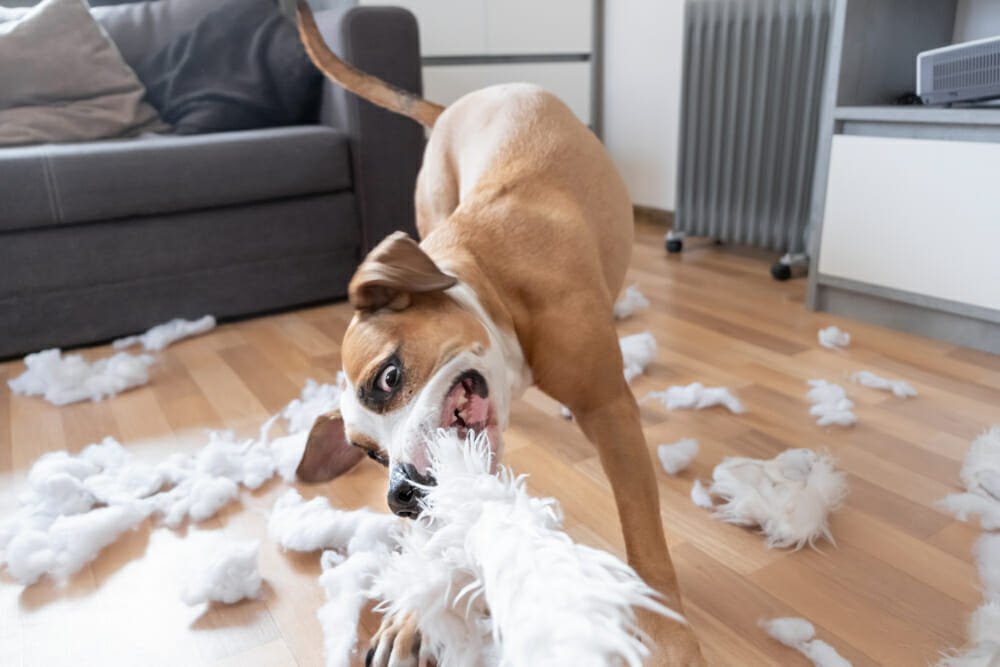
This phase in a dog’s development is not so different from that phase in humans. Remember back when you were a teen and your hormones and brain chemistry changes started to muddle decision making? The same is true for our pups! (We’re just glad they don’t have keys to the car) Another nice thing to remember is that this is a phase.
Like so many things in the dog training world, the length of adolescence depends on the individual dog and to a great extent the breed or breed mix. Smaller dogs mature faster than the giant breeds, so your pup’s adolescence can be anywhere from six to eighteen months.
Some Easy Tips
While we can’t really send our pup off to boarding school, we can (and should) manage their environment so they don’t get into as much trouble as they might and help set them up for success.
Give them Proper Chew Toys
A great way to do this is to make sure there are lots of good things for them to chew on. Because nature is telling them to strengthen their jaws, a natural part of this phase is that chewing can be increased. Take those pesky remotes, pens, sunglasses, shoes, (you get the drift), in places your pup can’t reach and give them access to their favorite chew toys instead.
Burn Some Energy
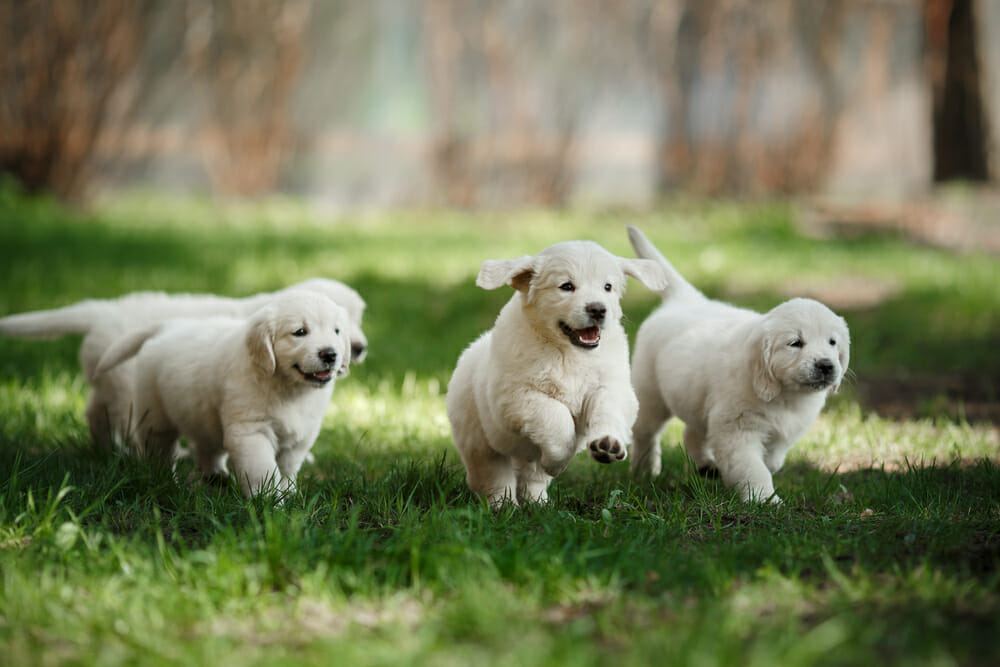
As your pup hits their teens, so to speak, they are going to have lots of energy and it might be a little overwhelming for you. Play dates, long walks and training will help burn some energy and keep them mentally stimulated too. Meet up with one of your friends and their pup and take a walk in the park together or let your pups play in your house while you and your friend sit and watch them together.
Hiring a trainer is great to help cement in some great behavior, but you can always work with your dog on the basics. Short fun sessions will do wonders and will also help strengthen the bond between you and your pup. You can check out some of our past IG lives for training tips on getting started, on reducing barking, on crate training and managing anxiety, and on leash and sleep training.
And remember, positive reinforcement is always the sure way!
Even if you’re working at home, you can always hire a dog walker. You deserve a little peace and quiet and it will allow your patience to recover.
This Too Shall Last
Even when our dogs are being knuckleheads, we do love them. Take a deep breath, cuddle your puppy, and know that you’ll all get through this together.


